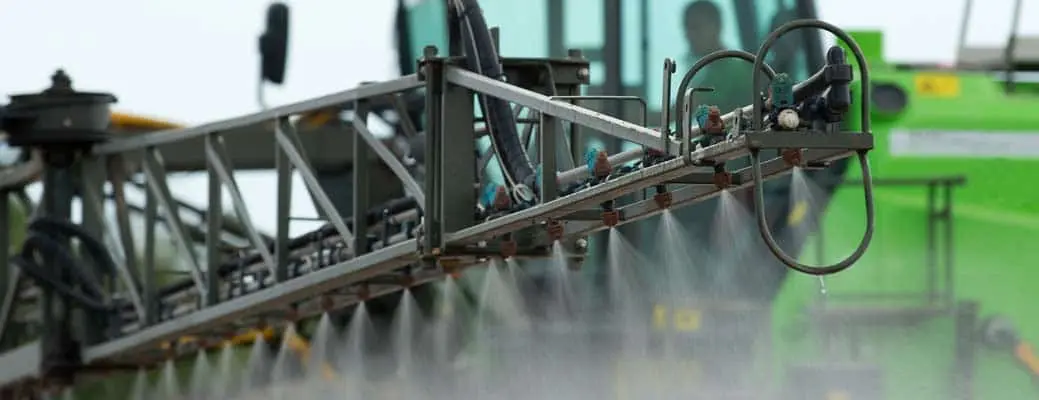5 Farm Chemical Safety Tips


There are many benefits to using agricultural chemicals on your farm, including protecting your crops and in turn, protecting your crop yield. However, accidents do happen, and chemical spills can be dangerous. Here we discuss how to avoid chemical spills and provide tips for what to do if it happens on your property.
Managing Agricultural Chemicals
The use of ag chemicals is part of the job, and it comes with great responsibility. Understanding the dangers of these chemicals and how to use them safely can prevent a toxic situation.
When you’re dealing with powerful chemicals, you’ll want to make sure you’re protected from harmful skin contact with personal protective equipment. According to the Occupational Safety and Health Administration, personal protective equipment — commonly referred to as "PPE" — is equipment worn to minimize exposure to hazards that cause serious workplace injuries and illnesses. These items may include gloves, safety glasses and shoes, earplugs or muffs, hard hats, respirators, coveralls, vests and full body suits.
Agricultural chemical safety is important not only for you as the owner of your operation, but also for the people working with hazardous chemicals under your watch. All employers with hazardous chemicals in their workplaces must have labels and safety data sheets for their exposed workers, and train employees to handle the chemicals appropriately, according to the Occupational Safety and Health Administration. The U.S. Environmental Protection Agency provides free resources on their website.
Safety measures are important for farm chemical storage on your property to reduce the risk of contamination. Check container labels for proper storage instructions and only buy the amount of chemicals you will need in the near future to avoid stockpiling. Chemicals should always be kept out of reach of children and animals and never in the same area as food, animal feed or medical supplies.
When handling toxic chemicals, it’s important to be aware of your surroundings and have information on the type of chemical you are using in the case of an emergency. Always wear the appropriate protective equipment and never eat, drink or smoke near the chemicals.
Plan Ahead and Be Prepared
The thought of hazardous chemical exposure on your farm or ranch is scary. Being prepared can help you quickly and efficiently respond in an emergency. Make sure you’re informed and prepared to protect yourself and your workers by staying on top of the materials you need on hand. Your local Farm Bureau agent can also walk you through coverages that may offer additional peace of mind, like Workers’ Compensation.